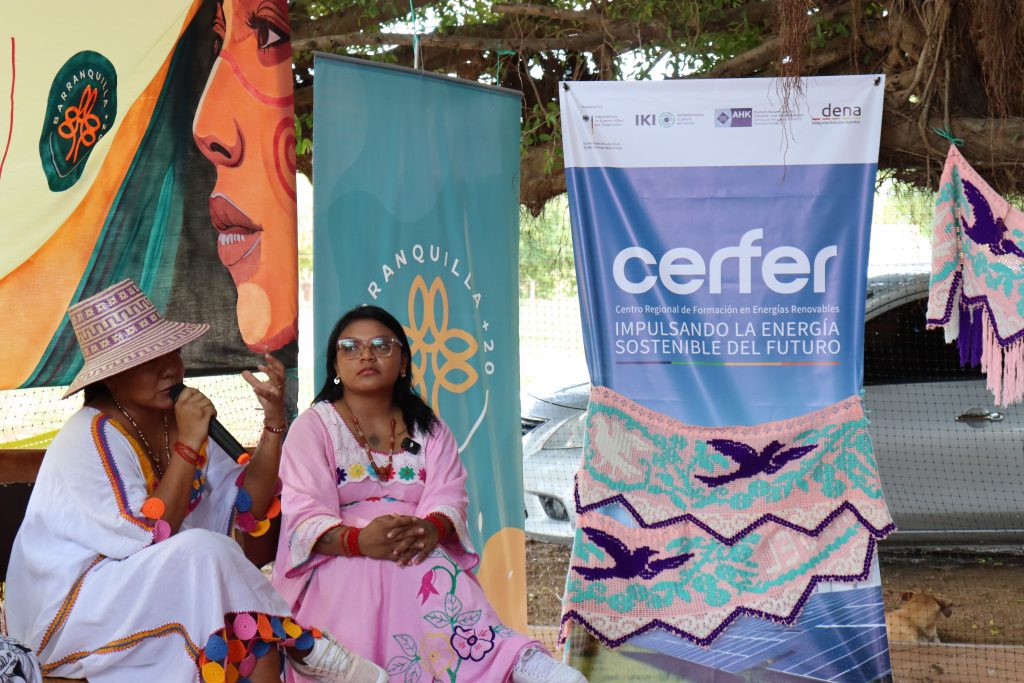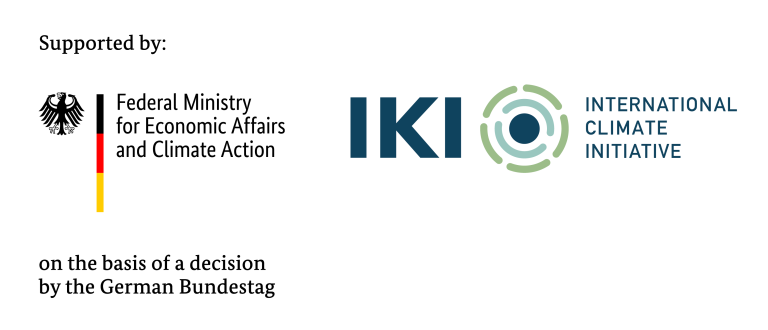Just Energy Transition
The course will be developed under a collaborative and meaningful learning model, with a practical-theoretical approach, which will allow the construction of a knowledge path, resulting in the co-creation of a shared vision and good governance practices, around the Just and Peaceful Energy Transition.
Aimed at: Communities in the Caribbean region.

Overview
Just Energy Transition
June 2024 – October 2024
Friday 5pm – 7 pm
not applicable / in progress
Virtual synchronous
36 hours
No Cost
Partnership: Course in partnership with Fundación PARES.
Form of evaluation: Evaluation is based on participation and attendance control.
Criteria for receiving a certificate: By attendance.
Our specialists
Marlon Villamizar
CERFER - Electronics Engineer
Professional in Electronic Engineering, Specialist in Energy and Environmental Management, and Master in Eco-efficiency and Energy Markets
Luis Guillermo Guererro
CERFER - Agroindustrial Engineer
Agroindustrial Engineer with a Master's Degree in Industrial Engineering, and experience in education for work, articulation with the productive sector and the development of educational models.
Julián Eliecer Guerrero
CERFER - Energy Engineer
Energy Engineer with postgraduate studies in Energy Resources Management and final year student of the Doctorate Program in Engineering in the Energy Area.
Lizeth Serrato Contreras
Anthropologist
Anthropologist graduated with Cum Laude honors from the Universidad del Magdalena, with emphasis in social research and ethnographic method, specifically in the application of data collection techniques.
Daniela Bernier Pacheco
Lawyer
Lawyer and anthropologist graduated from Universidad Sergio Arboleda and Universidad del Magdalena. Specialist in Human Rights and International Humanitarian Law. She has more than one (1) year of experience in Transition and training processes to strengthen Energy Communities; with legal and social approach.
Jhon Jairo Correa
Electronics Engineer
Electronics graduate from the Universidad Pedagógica y Tecnológica de Colombia (UPT Duitama-Boyacá). Specialist in energy efficiency and renewable energies (Basque Country), internal auditor of the ISO 50001 standard (SGS), and founder of FAE COLOMBIA clean energy.
What will participants learn?
Participants will be able to understand the key concepts of Just and Peaceful Energy Transition, such as: Energy Transition, Governance for Energy Transition, Energy Efficiency, Energy Democratization, Energy Poverty, Social Sustainability, Normativity, Gender, Action without Harm, Biocultural Diversity, Energy Communities.
This educational program will contribute to the construction of a social and political subject capable of influencing and generating action within the governance processes through a process of strengthening and democratization of energy in communities in the Caribbean region:
1. Don Jaca Santa Marta – Magdalena
2. La Loma El Paso – Cesar
3. Kankuamo People Atanquez – Cesar
4. Tekia Community – Wayúu People La Guajira
5. Gwimake Community – Arhuaco People Aracataca – Magdalena
6. Casa Matíz Aracataca – Magdalena
7. Agro-ecological and socio-environmental association of Macondo. Aracataca – Magdalena
Skills that participants can acquire
- Identify the basic concepts of Energy Transition.
- Recognize the regulations applicable to the Energy Transition.
- Identify the components of the projects towards the energy communities in Colombia.
Course highlights:
Synchronous expository type classes
Case studies and role-playing to enrich the experience.
Workshops and forums, where the participation of the attendees will allow the realization of a shared view on the theme of each class.
For each Module CERFER conducts a session that presents case studies guided by professionals with experience in the respective topic under pedagogical guidelines that are adapted to the target population.
This course is divided in 6 modules
Module 1. Energies for the Transition.
This module provides an introduction to the key concepts of the energy transition at the global and national levels, addressing its trajectory and development. The characteristics and objectives of this process will be analyzed, with a special focus on the Colombian context. In addition, the relationship between the energy transition and the Sustainable Development Goals will be explored, as well as the main challenges faced by the energy communities on the road to a just energy transition in Colombia.
Energy Transition applied to everyday life (Case technological breakthrough in light bulbs).
Module 2. Transforming energies.
This module aims to provide communities with a fundamental understanding of available renewable energy technologies and their applicability in the Colombian Caribbean. It will explore the technical characteristics, benefits and challenges of various energy sources, such as solar, wind, hydroelectric, geothermal, biomass and hydrogen, highlighting their potential to mitigate climate change, increase energy security and promote socioeconomic development in the region.
Cases of application of photovoltaic technology in the agricultural sector.
Module 3. Energy in legislation.
This module provides a legal overview of the Energy Transition in Colombia, with a focus on social justice and peace. It provides communities with a clear legal basis on the regulations governing the energy transition processes in the country, including the most recent laws and the legal mechanisms available for their participation and environmental protection.
Detailed energy bill analysis and interpretation for consumption optimization.
Module 4. Energy for people.
This module is designed to foster knowledge about energy communities, exploring their characteristics, history in Colombia, and their key role in the Just Energy Transition. In addition, different organizational forms and the legal framework that regulates them will be reviewed, with practical examples of their application in the region.
Governmental Strategies for the implementation of Energy Communities in Colombia.
Module 5. Impacting energies.
This module seeks to promote active participation and the construction of a shared vision for the democratization of energy in the Caribbean region. The concepts of good governance and social and political subject will be explored, highlighting the importance of multi-stakeholder collaboration and community participation in the Just Energy Transition. In addition, national and international case studies will be analyzed to strengthen the dialogue around energy governance.
Module 6. Energies for the future.
This module provides communities with the necessary tools to transform their ideas into concrete projects that contribute to the energy and social transformation of their territories. Participants will learn how to formulate project profiles, addressing key aspects such as context, justification, indicators and budget, culminating with the delivery and feedback of their proposals.
Staying up to date on new courses?

Lead



